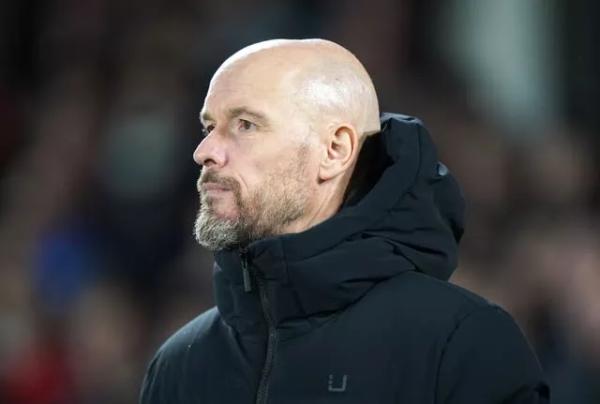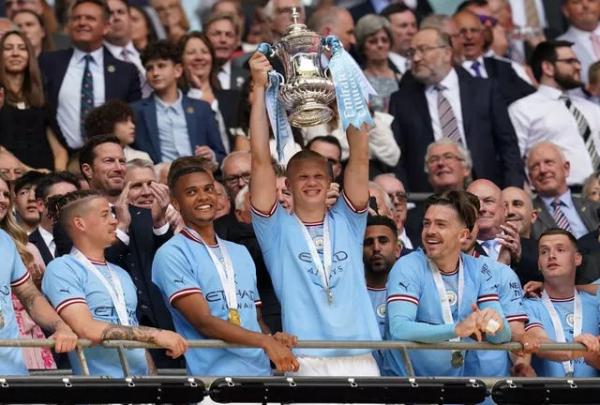
Saturday’s Manchester derby at Wembley has more riding on it than simply the destination of this season’s FA Cup.
Not only are City and United gunning for local supremacy, there is broader significance to the final regardless of which side, red or blue, lifts the cup.
Here, we look at what is at stake.
Erik ten Hag’s future

The United manager has overseen the club’s lowest Premier League finish as well as 14 league defeats and a first-ever negative goal difference, while defeat at Wembley will leave them facing just a second season since 1989/90 without European football.
New minority owners Ineos, led by Sir Jim Ratcliffe, must now decide to what extent the team’s decline is the fault of their Dutch coach’s leadership, and whether he is the right man to helm whatever structural changes it plans to implement.
With a number of high-profile managers on the market this summer – among them three former Chelsea bosses in Mauricio Pochettino, Thomas Tuchel and Graham Potter – the cup final will be the owners’ last chance to learn about the team’s character under Ten Hag before making a call on his future.
Other clubs’ European hopes

Victory for United will mean they take the competition’s Europa League spot but a City win will be good news for two of their league rivals.
Sixth-placed Chelsea stand to qualify for Europe’s secondary competition if Pep Guardiola’s team triumph while Newcastle, who played in the Champions League this season, would take a Europa Conference League berth.
If United win the cup then the Blues will play in the Conference League and Eddie Howe’s team will miss out on Europe altogether.
City’s ‘double double’

It may appear diluted in the context of the treble that City won last season, but though they may have missed out on retaining their European crown they can still become the first team to win back-to-back league and cup doubles.
It could be a second piece of history this campaign after they became the first side in English football history to win four straight league titles.
Whatever the outcome, it will be the first time since the 1884/85 season that the final has been contested by the same teams in consecutive seasons, with the most recent pairing having been Blackburn and Scottish side Queen’s Park, with Rovers winning both games.
Haaland’s goalscoring landmark

He may not have equalled last year’s breathtaking haul but, despite missing a sizeable chunk of the season either side of Christmas with a foot injury, City’s top-scorer stands on the brink of a significant milestone by netting 40 or more goals in all competitions in consecutive seasons.
To pull it off he needs two goals at Wembley, which would in turn take his City total to 92 since joining from Borussia Dortmund less than two years ago.
Sourse: breakingnews.ie